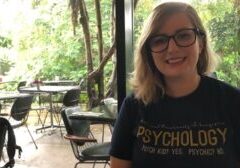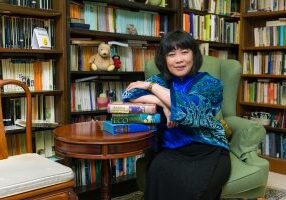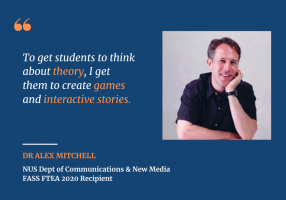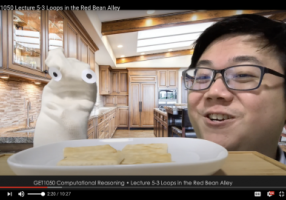Dr Alex Mitchell: Emphasis on Experiential Learning is Essential
November 26, 2020

IN BRIEF | 3 min read
- Experiential learning is essential for Interactive Media Design students to understand concepts such as interactivity
- Educators must enable students to own their learning by allowing self-expression or creativity in group projects, and encouraging reflection and critique of their personal and peers’ work
When Assistant Professor Alex Mitchell first began teaching at the then-newly minted NUS Department of Communications and New Media (CNM) in 2005, he had to overcome traditional barriers to introduce a practice-based teaching approach within a "largely theory-based faculty."
"In the early days of CNM there was hesitation towards, for example, two-hour design-based tutorials and 100% Continuous Assessment (CA) modules. But over time this has changed, and alternative approaches are now very much welcome,” explained Dr Mitchell, now an Assistant Professor specialising in Interactive Media Design education.
For him, it is essential to incorporate experiential learning by allowing students to apply theory through hands-on practice, as students only truly understand concepts such as interactivity when they see how and why something works or does not work.
“To get students thinking about theory, I get them to create games and interactive stories, reflect on how this process embodies the theories they learn, and ideally even question those theories based on their lived experiences," he added.
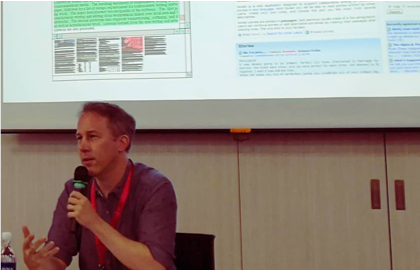
Dr Mitchell was one of 36 recipients of the Faculty Teaching Excellence Award (FTEA), conferred on outstanding Arts and Social Sciences (FASS) faculty for their high level of commitment in Academic Year 2019/2020.
As a member of the CNM curriculum committee, he is involved with redesigning curricula, the Joint Minor in Interactive Media Development, and continuing education. He has also proposed and developed several modules with the School of Computing (SoC) and University Scholars Programme (USP).
He said his philosophy is first to determine learning objectives, and then how to enable students to own their learning.
“It can be a group project, which allows self-expression or creativity, or encouraging reflection and critique. With an active learning approach focusing on the student, students can own the learning process,” he added.
Taught by Dr Mitchell and now his Teaching Assistant, Brandon Lee attests to the level of effort Dr Mitchell puts into planning and delivering lessons. “His lectures are engaging and build upon the weekly assigned readings, helping students see the practical value of what they learn,” said Brandon, a 2019 graduate who currently assists Dr Mitchell with NM2213 Introduction to Human-Computer Interaction Design and NM3216 Game Design.
“Through the semester, Dr Mitchell gathers student feedback on his modules. He is so approachable, students are comfortable to ask questions and he adapts lessons along the way,” he added.
Outside the classroom, Dr Mitchell promotes interactive media education as advisor to the Singapore Games Association and is staff advisor to the NUS Game Development Group (NUSGDG), an interest group which designs games and organises student-led workshops culminating in an annual game jam, Gamecraft, where students labour over 24 or 48 hours to develop an original game.
Dr Mitchell advises and offers industry links for NUSGDG, which has seen several members enter the game industry here and overseas, and now return to offer insight for their juniors.
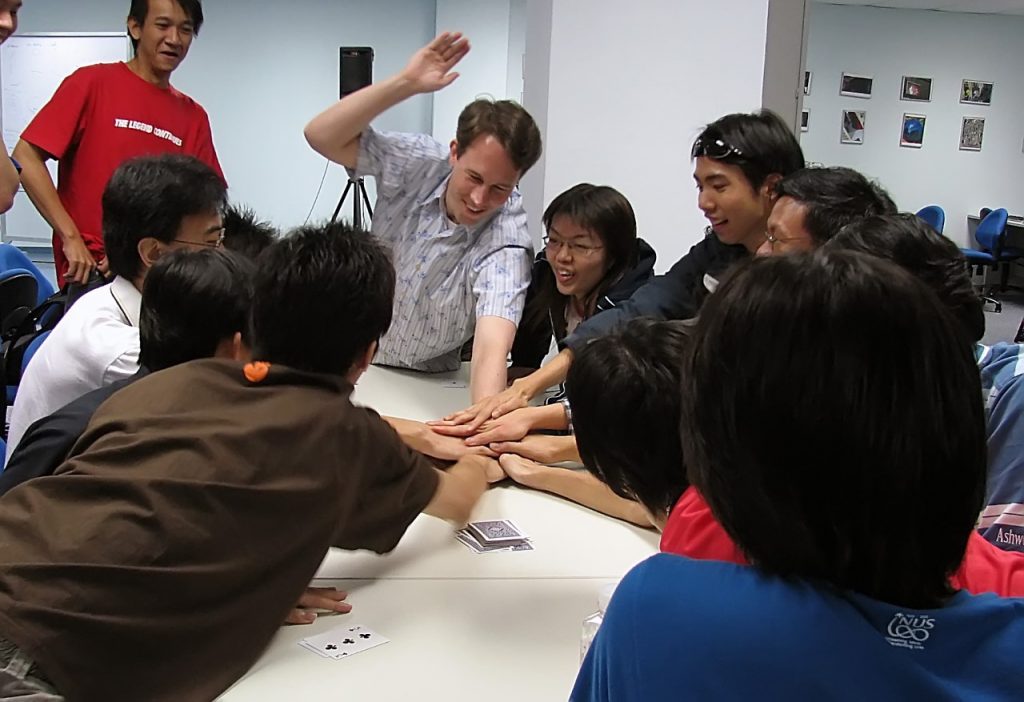
He also enjoys different forms of storytelling, for instance, developing print stories which incorporate interactive media experiences, such as choice, variation and exploration. He has written several short stories and created interactive artworks using non-computational media, such as playing cards and flipbooks.
Dr Mitchell said his most rewarding experience is meeting former students, and realising his teachings have stayed with them. “It is encouraging to hear them mention something I covered in class. It reminds me that though it may have had a minor impact at the time, what I try to do in class has actually helped their development and way of thinking,” he said.
This story is part of a series highlighting the pedagogical approaches of selected FASS Faculty Teaching Excellence Award 2020 recipients.
Award Citation
"Dr Mitchell incorporates experiential learning and project-based learning in his modules. In NM3222 Interactive Storytelling, students create interactive stories and test prototypes with their classmates during tutorial, and in NM4227 Game Studies, students design new games in a traditional format, such as a board game. He works toward building a strong learning community by providing feedback at every stage of the process in each module and using online forums and chatrooms to enable students to give continuous feedback to their classmates. He also practices reflective teaching by listening to students’ feedback on his performances during the semester."
—FASS Faculty Teaching Excellence Committee (FTEC) chaired by Vice Dean (External Relations and Student Life) Associate Professor Loy Hui Chieh, and comprising Associate Professor Christopher Michael McMorran (Japanese Studies), Associate Professor Stephen Lim (Psychology), Senior Lecturer Gilbert Yeoh (English Language and Literature), and Senior Lecturer Chen Ingru (Centre for Language Studies).


